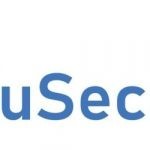Quantum News Briefs July 5: Toyota Tsusho Partners With Quantum Machines To Provide Quantum Solutions for Japanese Market, Quantum Optical Ground Station in Scotland, UK Military Investigating Quantum Computers for Battlefield Tanks and MORE

Quantum News Briefs open today with a major announcement of Toyota Tsusho’s partnership with Quantum Machines to provide quantum solutions for the Japanese market, followed by news of a quantum-focused optical ground station’s installation in Dundee Scotland, and an alert describing the UK’s Ministry of Defence (MoD) recent purchase of an Orca quantum computer to explore whether the technology can be installed in battlefield tanks, and MORE.
Toyota Tsusho Partners With Quantum Machines To Provide Quantum Solutions for Japanese Market
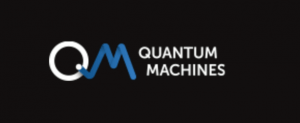 Quantum Machines and Toyota Tsusho Corporation (Toyota Tsusho), a member of the Toyota Group, delivering to countries around the world a diverse range of products and services, today announced a partnership to offer Japanese customers cutting edge quantum technologies. The partnership will enable Toyota Tsusho customers to integrate comprehensive quantum technologies and build quantum capabilities for the future. An early promoter of quantum technologies, Toyota Tsusho has been developing businesses utilizing quantum computers since 2017. The partnership combines Toyota Tsusho’s unique understanding of their customer ecosystem with QM’s quantum computing expertise to provide access to innovative quantum control solutions that support their long-term goals and quantum computing aspirations. Read complete partnership announcement here.
Quantum Machines and Toyota Tsusho Corporation (Toyota Tsusho), a member of the Toyota Group, delivering to countries around the world a diverse range of products and services, today announced a partnership to offer Japanese customers cutting edge quantum technologies. The partnership will enable Toyota Tsusho customers to integrate comprehensive quantum technologies and build quantum capabilities for the future. An early promoter of quantum technologies, Toyota Tsusho has been developing businesses utilizing quantum computers since 2017. The partnership combines Toyota Tsusho’s unique understanding of their customer ecosystem with QM’s quantum computing expertise to provide access to innovative quantum control solutions that support their long-term goals and quantum computing aspirations. Read complete partnership announcement here.
Toyota Tsusho Corporation was founded in 1948 as the trading company for the Toyota Group. Today, Toyota Tsusho operates in more than 130 countries with approximately 65,000 Group employees, all striving to contribute to the creation of prosperous societies. Toyota Tsusho continues to expand as a global leader in vehicle exports and automobile production support. The company has seven operating divisions (Metals/ Global Parts & Logistics/ Automotive/ Machinery, Energy & Project/ Chemicals & Electronics/ Food & Consumer Services/ Africa) focused around three business fields.
Quantum Optical Ground Station to be Placed Outside Dundee Scotland
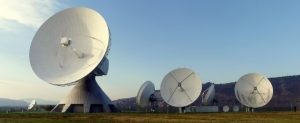
A new Quantum Optical Ground Station (OGS) is being installed at a facility outside Dundee, Scotland, to help research into Quantum Key Distribution (QKD) encryption technology.
The project is a joint venture between DSS and Hub researchers at Heriot-Watt University. The research facility will be developed as part of the Quantum Communications Hub project, funded through the UK National Quantum Technologies Programme. It aims to deliver quantum security at all distance scales, including intercontinentally via satellite.
Once operational, the HOGS will be used by researchers directly involved in the Hub’s satellite R&D program from the University of Bristol, Heriot-Watt University, Science and Technology Facilities Council’s Rutherford Appleton Laboratory, University of Strathclyde, and University of York. Other UK researchers will be invited to work on-site.
Dr. Ross Donaldson from Heriot-Watt University led the site proposal. He said: “I am thrilled that the Heriot-Watt University and Dundee Satellite Station Ltd. partnership was chosen to host the Hub’s Optical Ground Station. Heriot-Watt University has world leading expertise in quantum communications and the enabling technologies behind it. The addition of HOGS will place Heriot-Watt University at the forefront of satellite quantum communications research, enabling engagement with future missions from national and international teams.”
*****
Thales & Syrlinks to Develop Next-Generation Atomic Clocks Code Named CHRONOS for Civil & Defence Applications
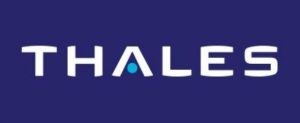 Thales and SYRLINKS, a French company based in Rennes, Brittany, have signed an ambitious multi-year contract with the French defence procurement agency (DGA) to develop a new generation of very small, high-performance atomic clocks. Code-named CHRONOS, these new quantum clocks will meet the requirements of numerous civil and military applications. Thanks to their very high stability (error of less than 1 second in tens of thousands of years), defence electronics equipment will be able to operate when a GNSS1 signal (GPS, Galileo, etc.) is unavailable, for example due to hostile jamming.
Thales and SYRLINKS, a French company based in Rennes, Brittany, have signed an ambitious multi-year contract with the French defence procurement agency (DGA) to develop a new generation of very small, high-performance atomic clocks. Code-named CHRONOS, these new quantum clocks will meet the requirements of numerous civil and military applications. Thanks to their very high stability (error of less than 1 second in tens of thousands of years), defence electronics equipment will be able to operate when a GNSS1 signal (GPS, Galileo, etc.) is unavailable, for example due to hostile jamming.
Working with the procurement agency, the partners will help safeguard France’s technological sovereignty in GNSS-denied positioning, guidance, navigation and ECCM-protected, encrypted military communications. In civil applications (5G network synchronisation, transport, energy, etc.), the CHRONOS quantum clocks will deliver unprecedented price/performance to French and international customers.
Large swathes of the modern economy now rely on satellite synchronisation, and all the world’s major powers have their own GNSS satellite constellations (like Europe’s Galileo system) to guarantee their independence and protect their sovereignty.
https://www.thalesgroup.com/en/worldwide/group/press_release/quantum-technologies-thales-and-syrlinks-develop-next-generation
*****
U.S. Army Researchers Developing Quantum Sensor Capable of Electromagnetic Detection at Great Ranges
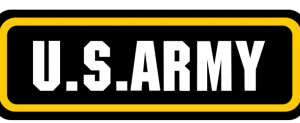 U.S. Army researchers are developing a quantum sensor capable of detecting electromagnetic emissions across frequency bands and at far greater ranges than traditional receivers and are considering demonstrating the capability with soldiers later this year.
U.S. Army researchers are developing a quantum sensor capable of detecting electromagnetic emissions across frequency bands and at far greater ranges than traditional receivers and are considering demonstrating the capability with soldiers later this year.
The technologists at the Army’s Command, Control, Communications, Computers, Cyber, Intelligence, Surveillance and Reconnaissance (C5ISR) Center envision a shoebox-sized device capable of detecting signals across bands such as long band, short band and conventional band, which are often shortened to L-, S- and C-bands. The device might also pick up signals at far greater distances.
The technology is a kind of sensor known as a Rydberg sensor, which takes advantage of the ability of so-called Rydberg atoms to react in different ways when exposed to varying kinds of electromagnetic fields.
James Tucker Swindell, chief of the C5ISR Center’s Radio Frequency Communications Division, indicates that it is difficult to pinpoint exactly how much farther away a quantum sensor could detect signals because the distance would vary from one band to the other. Swindell says quantum sensors offer other benefits both as a receiver for radios or as a spectrum detector. “The use of quantum physics in terms of the communications we’re engaged in really has to do with finding a way to detect really, really faint signals so that perhaps you can detect an enemy from a greater distance,” he elaborates. “You can detect the blue (friendly) forces that might be using these systems from a greater distance. Perhaps they can even power down and not have to be so loud in order for me to detect them as long as we know what we’re looking for.”
Swindell notes that extreme cooling of quantum systems is not practical on the battlefield. “Systems like the Rydberg do not require cryo-cooling,” he states.
*****
UK Military Investigating Quantum Computers for Battlefield Tanks
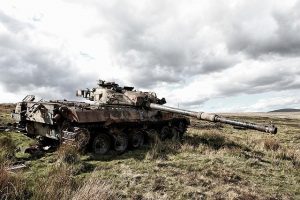 The UK’s Ministry of Defence (MoD) has bought a quantum computer in the hope that the technology can be installed in battlefield tanks, says Richard Murray, the CEO of Orca Computing. Orca announced the deal with the earlier in June, but the initial focus is on research and training.
The UK’s Ministry of Defence (MoD) has bought a quantum computer in the hope that the technology can be installed in battlefield tanks, says Richard Murray, the CEO of Orca Computing. Orca announced the deal with the earlier in June, but the initial focus is on research and training.
“This device we’re shipping to them certainly won’t do anything a classical computer won’t, and I suppose, in that view, it’s a research tool,” says Murray. “There’s a lot of activity being funded at the moment on upskilling.
*****
Sandra K. Helsel, Ph.D. has been researching and reporting on frontier technologies since 1990. She has her Ph.D. from the University of Arizona.


















